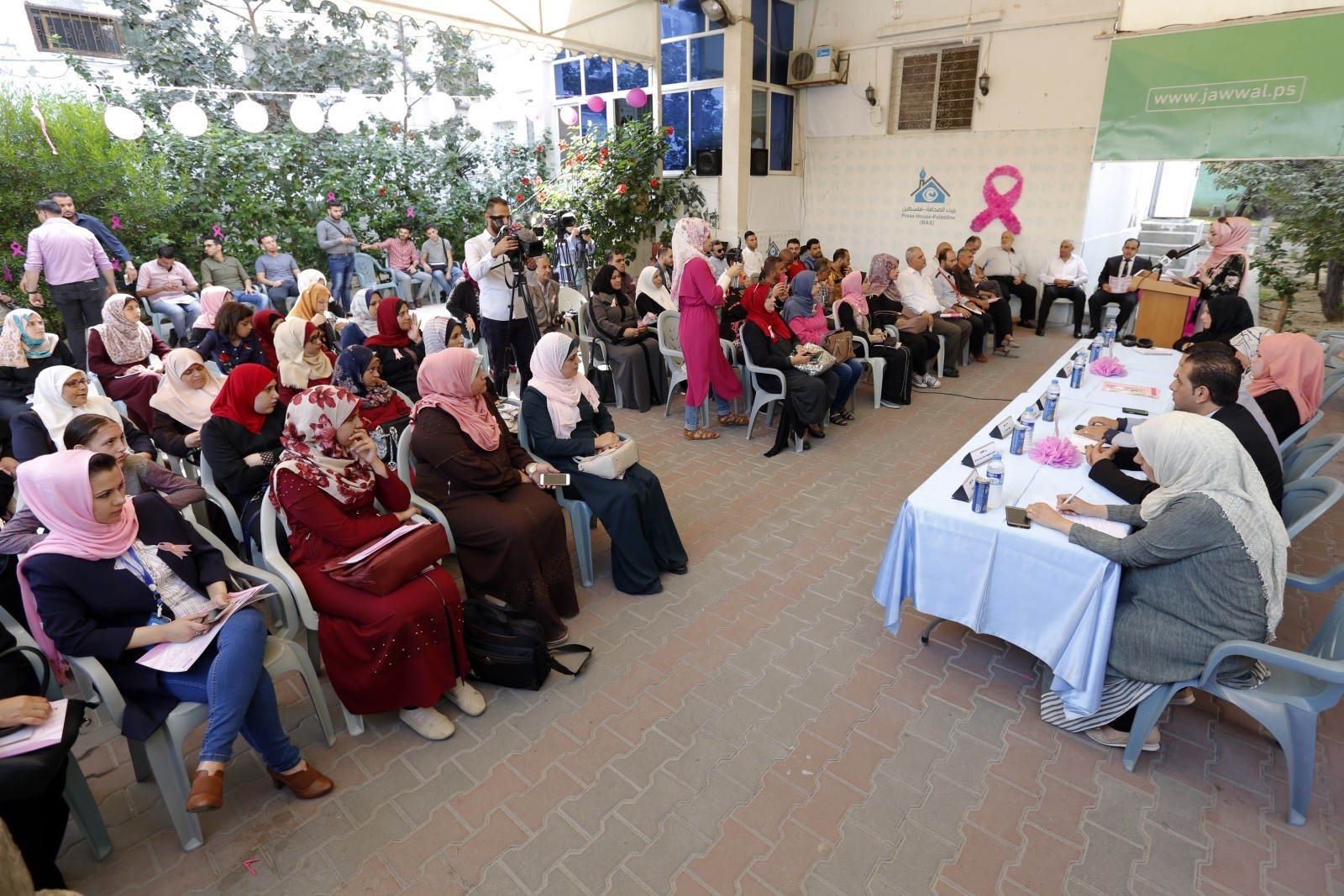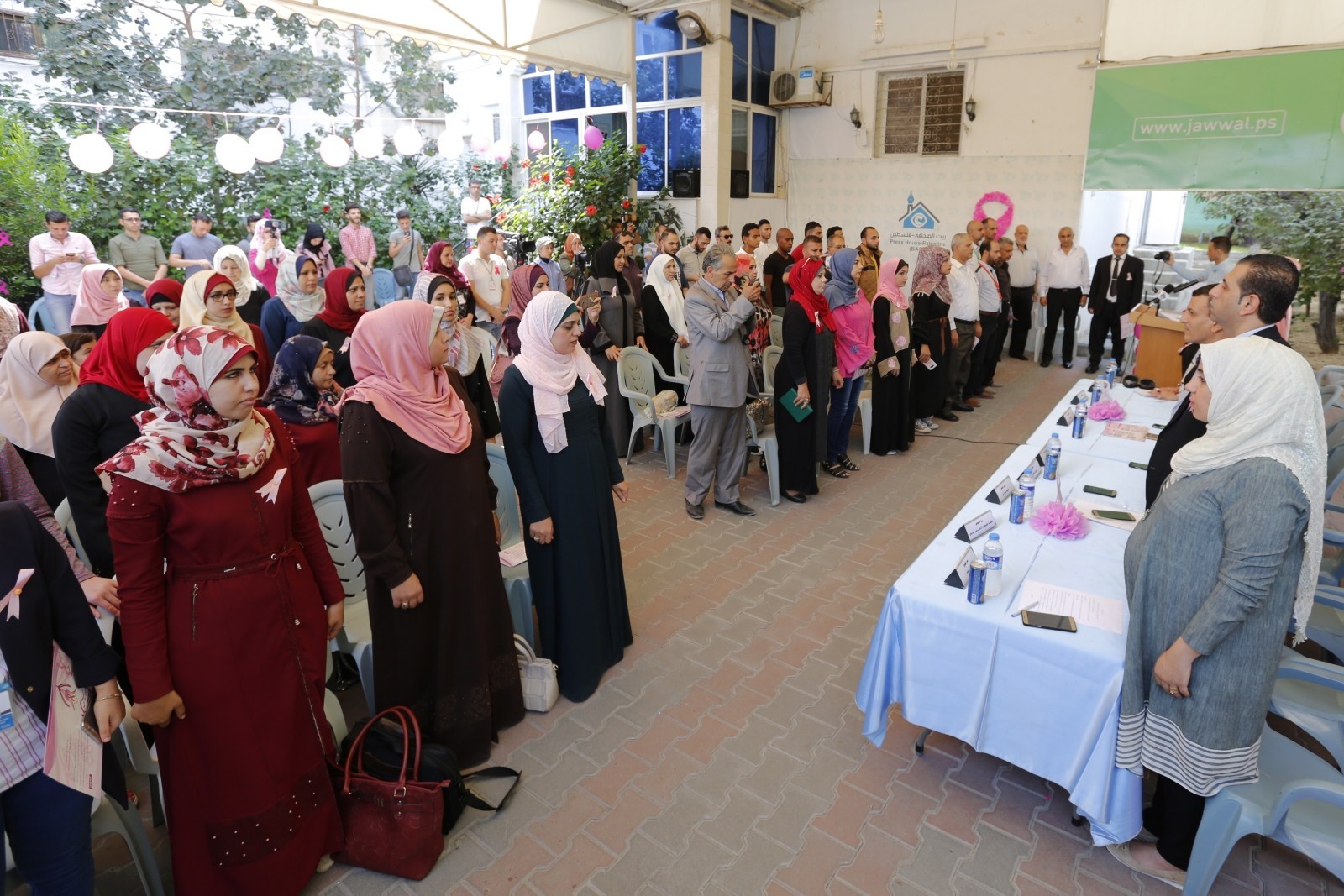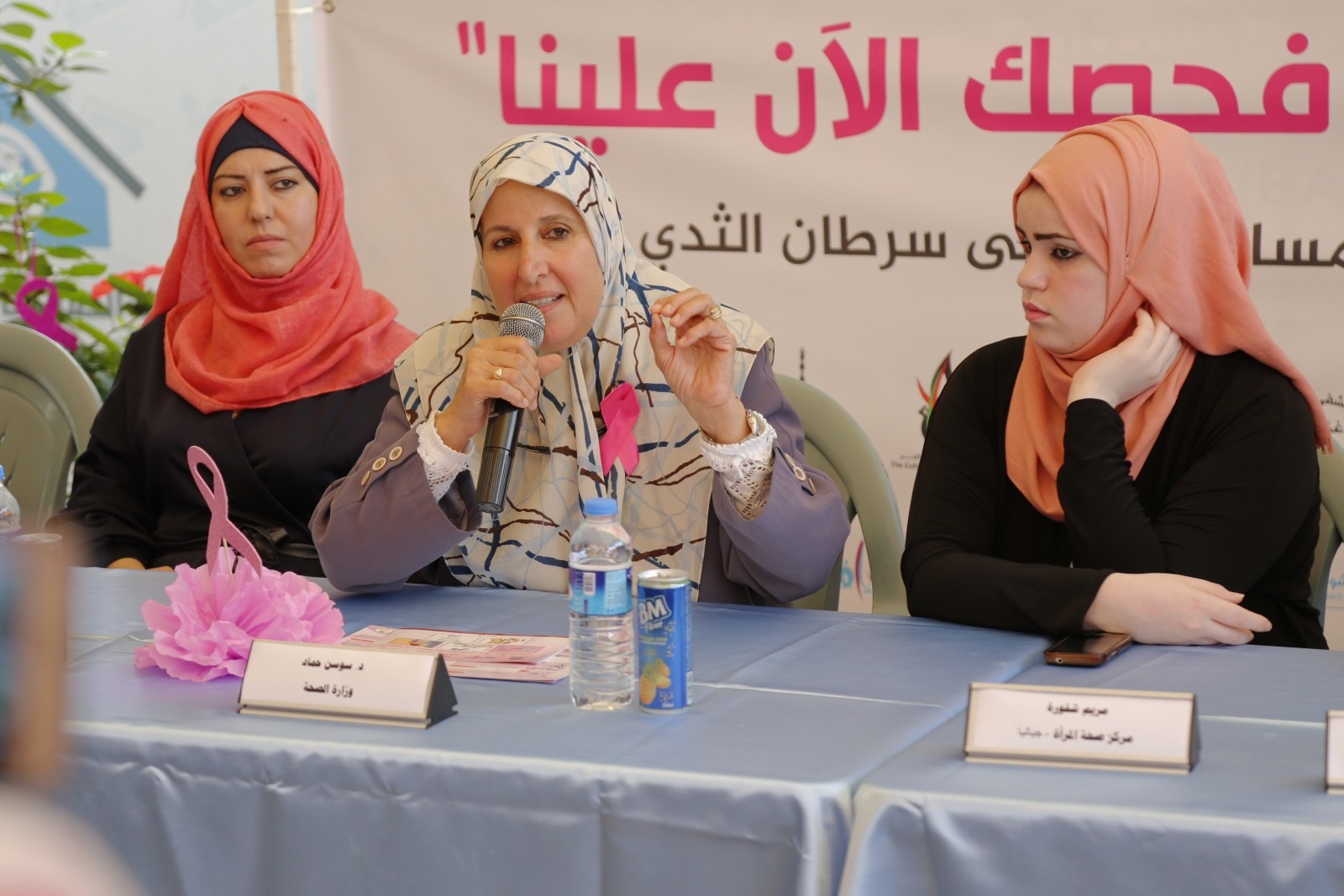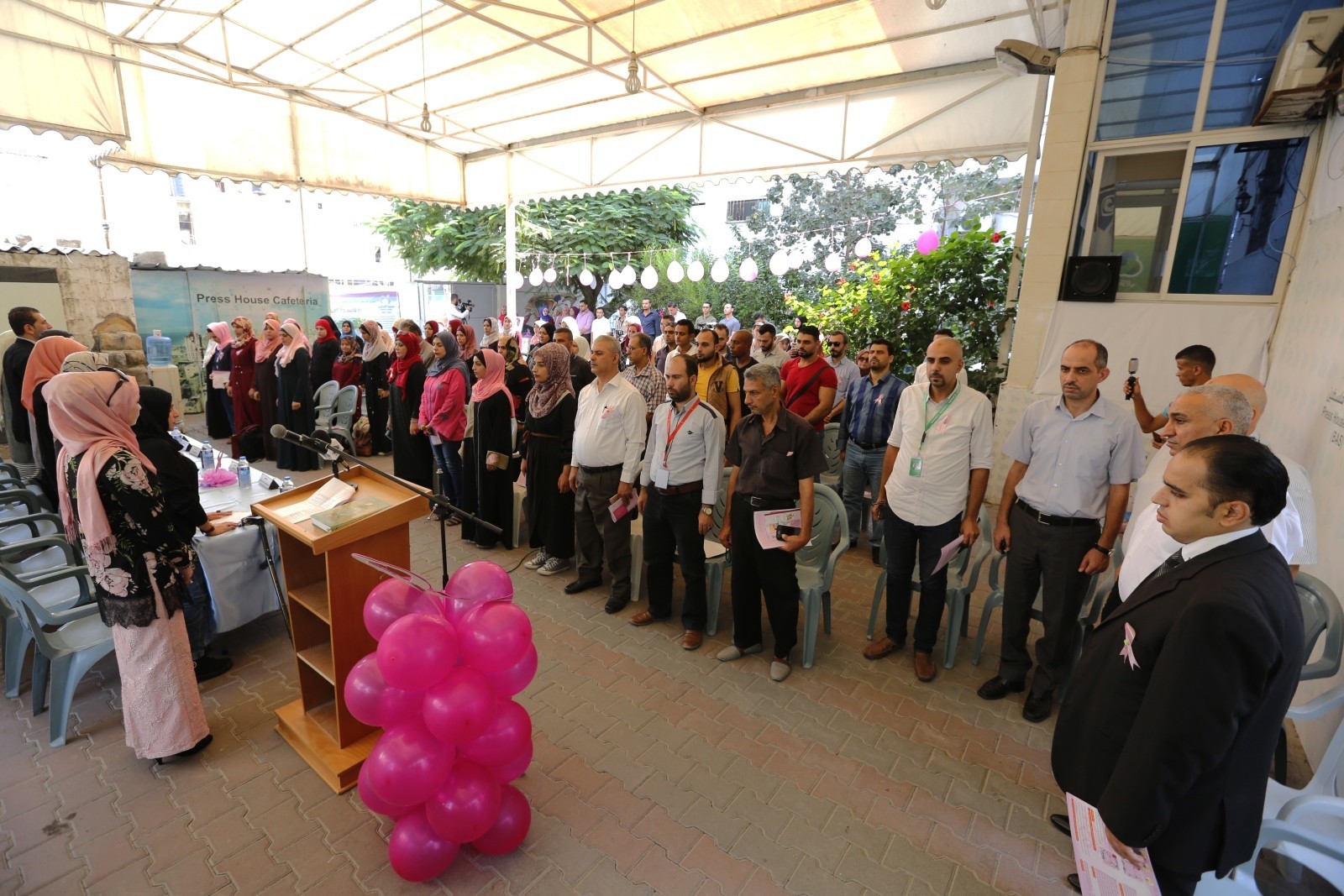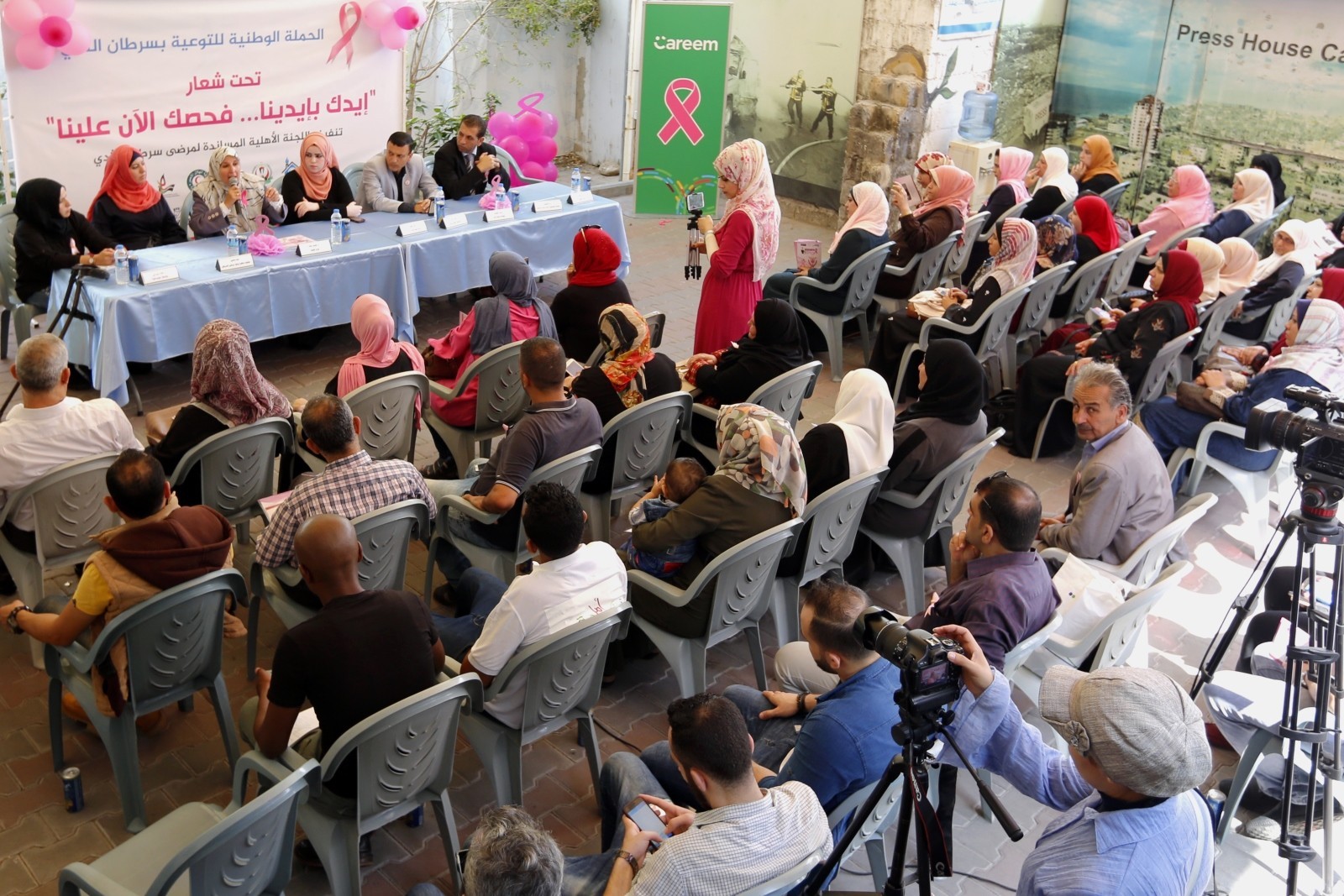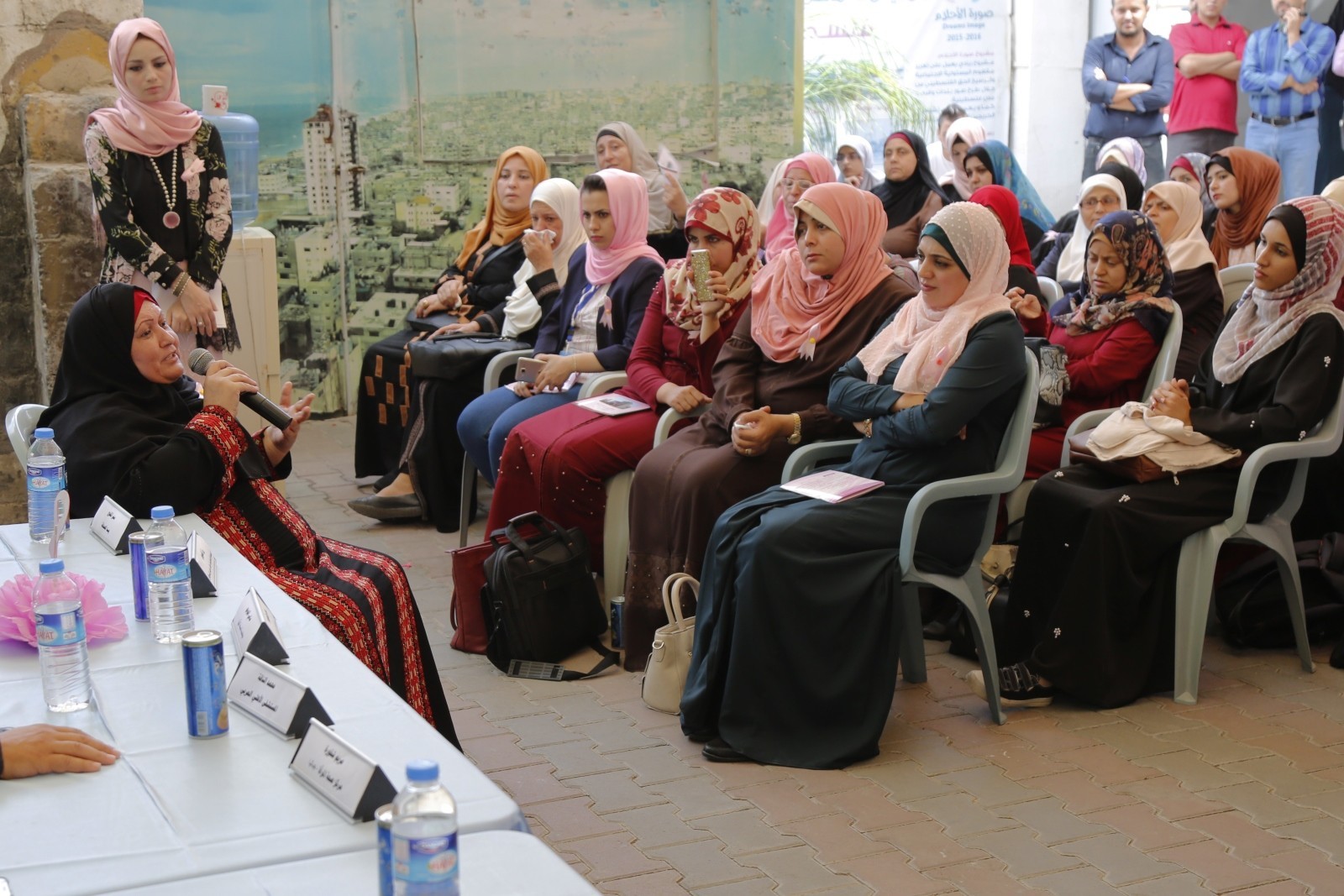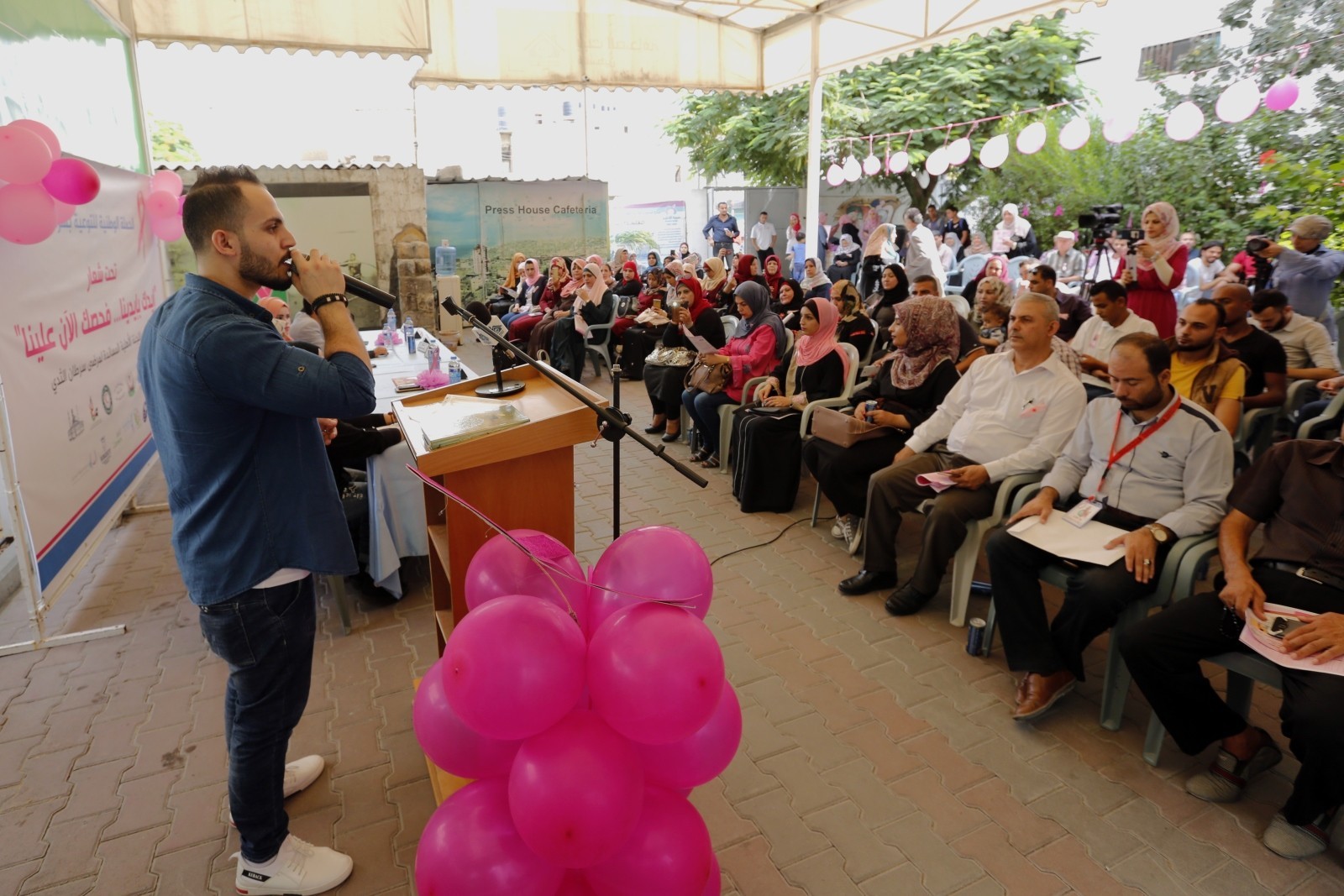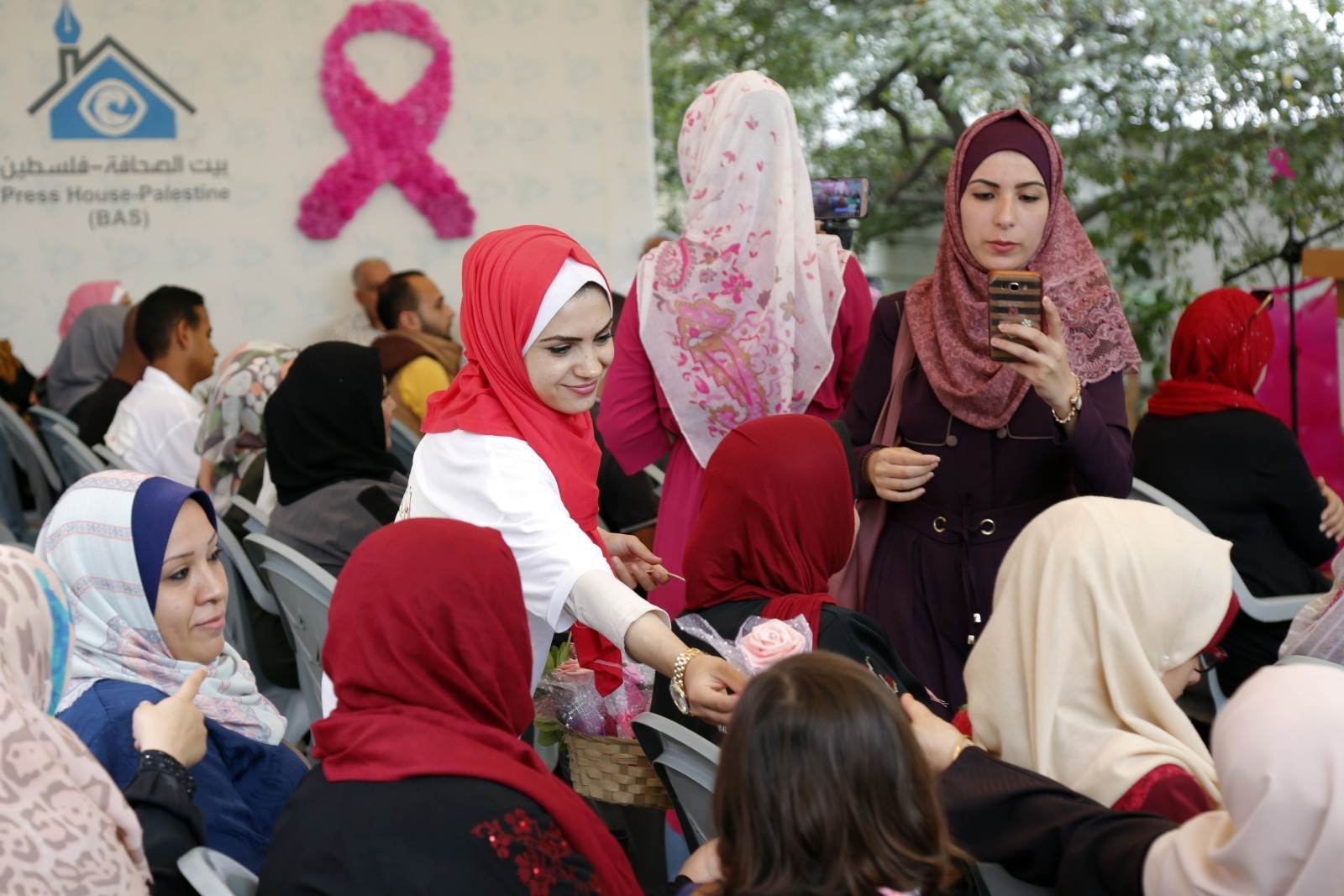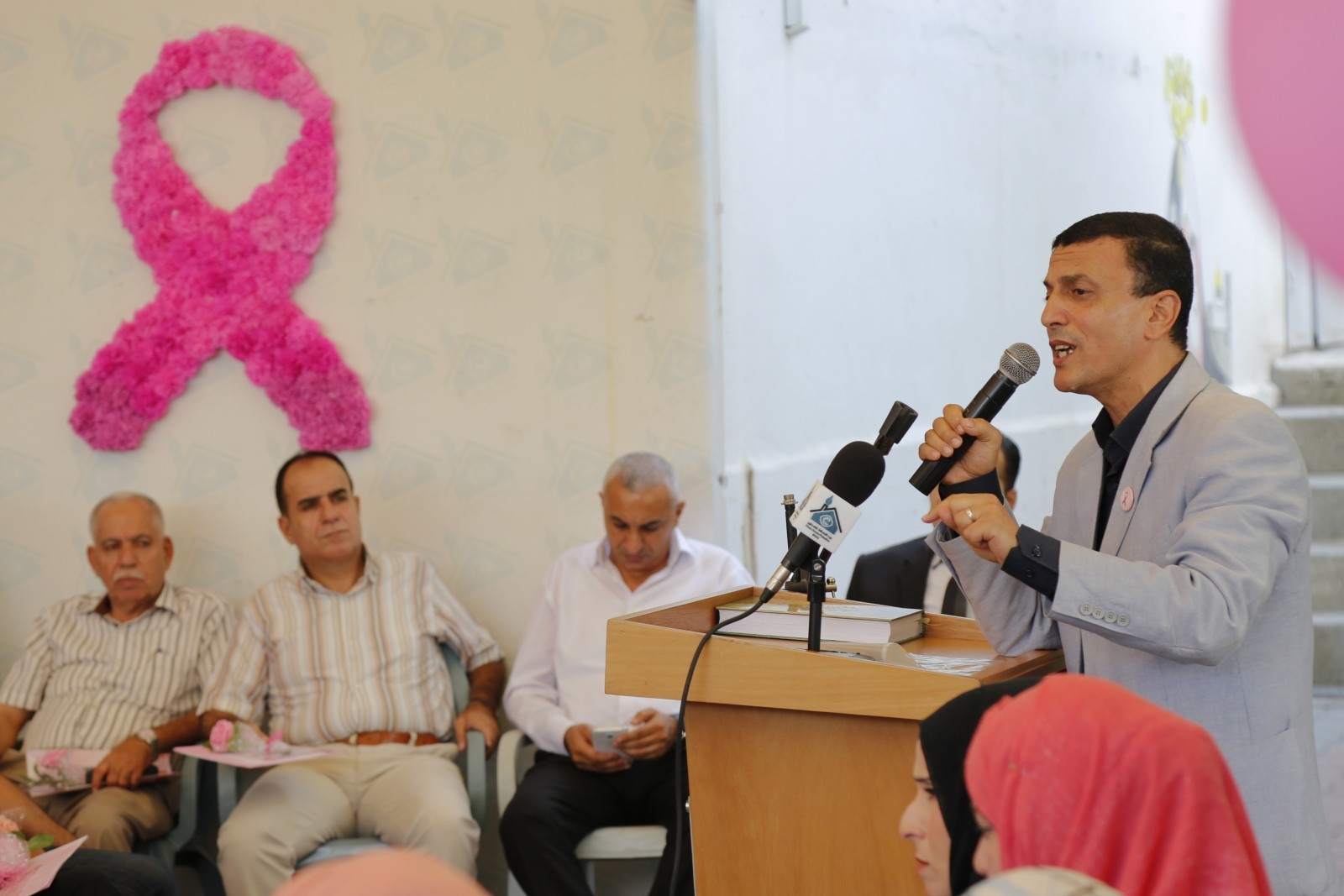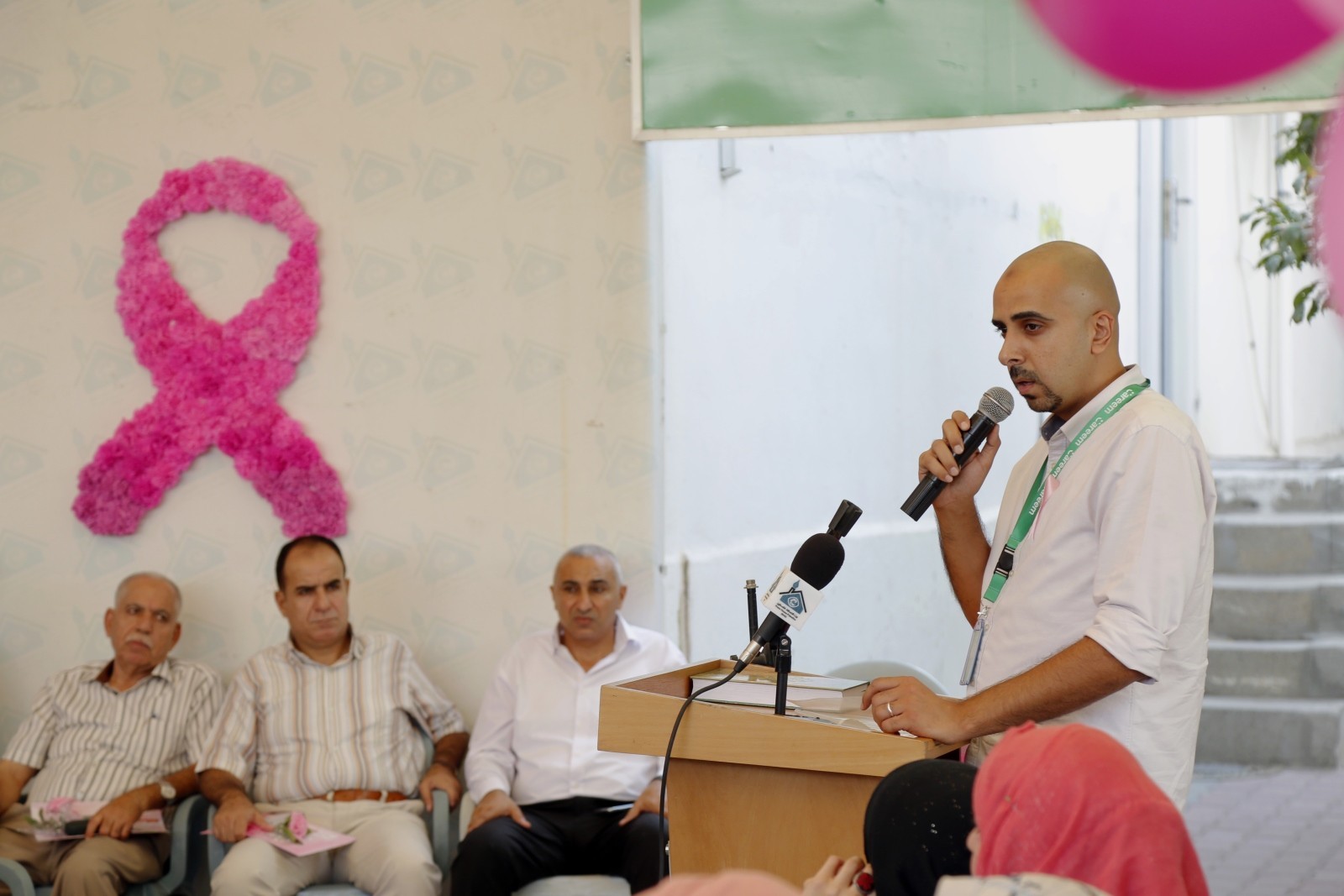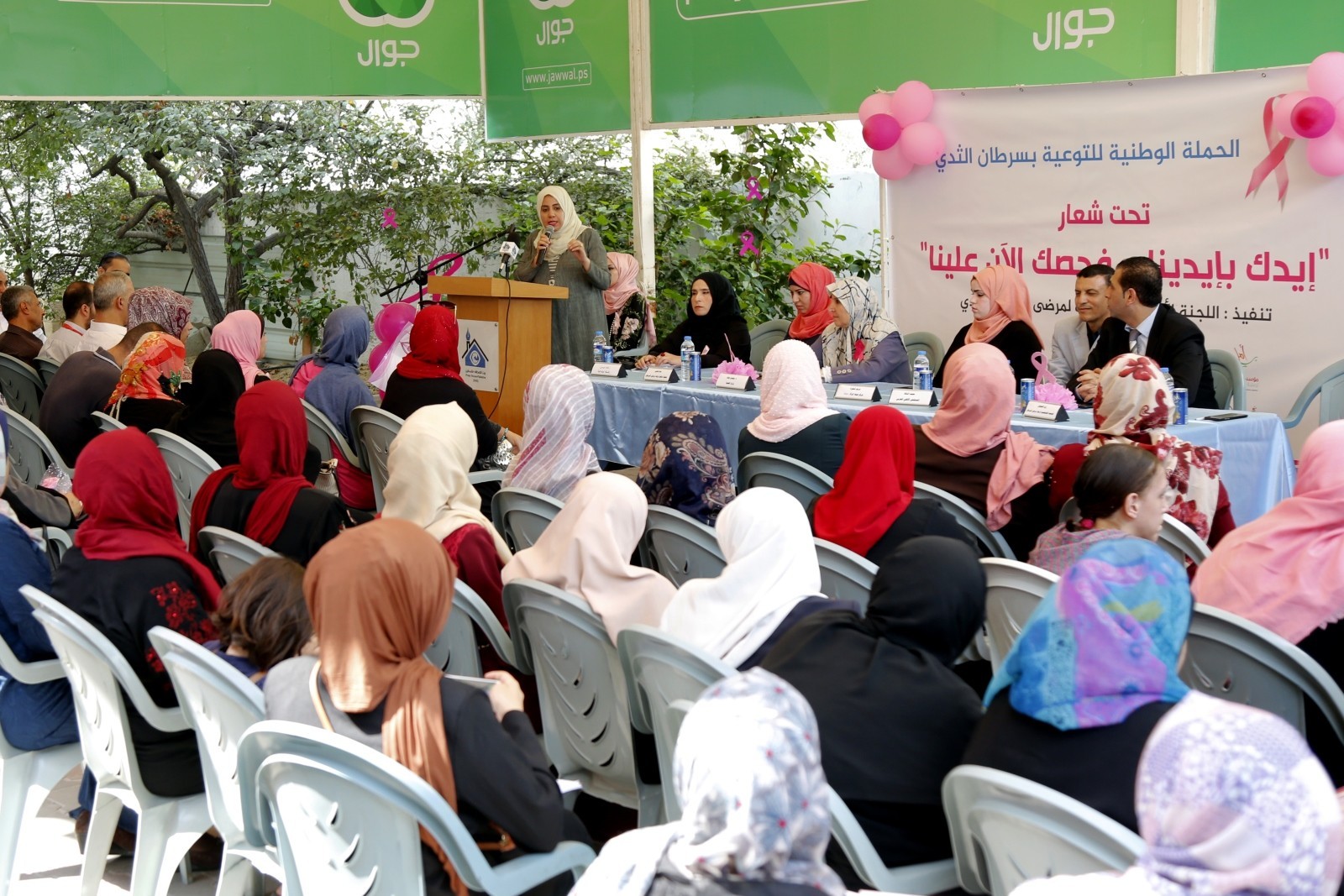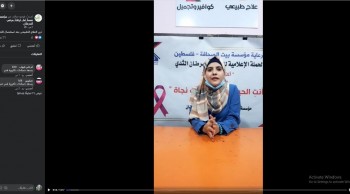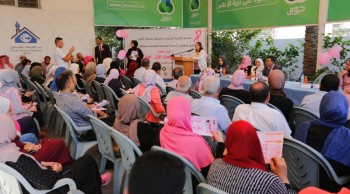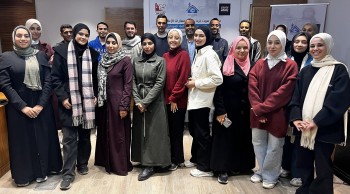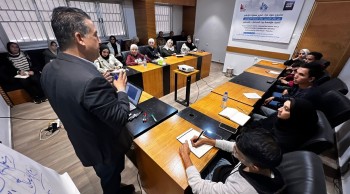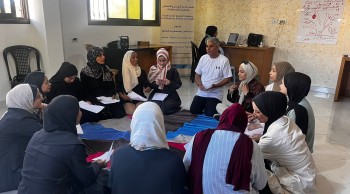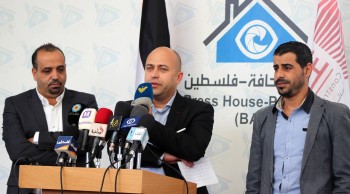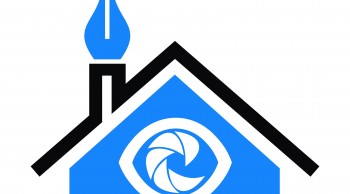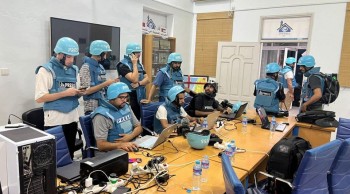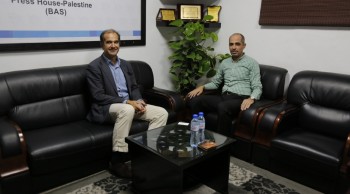The national committee to support breast cancer patients launched the national campaign to raise awareness of breast cancer under the slogan "Your Hand with ours, let's get you checked" at the headquarters of Press House in Gaza City.
The committee includes a number of civil society organizations, societies, health centers and companies.
In the welcoming speech delivered by Samar Al-Malfouh on behalf of Press House, she stressed the importance of raising awareness among Palestinian society in general and women in particular about breast cancer.
Al-Malfouh said that the Press House is an institution that sponsors the services of journalists and embraces the community initiatives, which increase the awareness of the Palestinian society.
Mohammed Mansour, Director of Basmit Amal Association for Cancer Care, said that despite the difficult conditions facing Gaza Strip, the association strives to support cancer patients through several programs through providing services to patients.
Mansour confirmed that the institution provided services to 2800 cancer patients from Gaza Strip and that the number is increasing.
Sawsan Hammad, the representative of the Palestinian Health Ministry, said that the number of women who have early stages of cancer and can survive is very low, due to the lack of awareness among citizens about the necessity of doing early tests.
Hammad stressed that cancer is the second most deadly disease after heart disease, as breast cancer is the most prevalent.
She added that the factors leading to cancer can be the increase in weight, hormones and others, but the main factor is the genetic factor and genetic transformation.
She explained that since 2008, the Ministry of Health has allocated a special section for early screening of breast cancer using high-efficiency devices, noting that the process of examination and follow-up is free, but this section suffers from a low turnout.
In the same context, Salwa Ghaben, 53, a breast cancer patient for four years, had a mastectomy after the spread of cancer cells in the thyroid gland and bones. She was exposed to radiation and chemical therapy in West Bank hospitals and then returned to Gaza Strip to complete her treatment.
Ghaben said that she lived with the disease after the psychological support she received from her family members and through Basmit Amal Society for Cancer Care. She then became a woman who deals with cancer patients and provides them with psychological advice and support to get them out of the depression and isolation caused by the disease after hair loss and changes in the body.
